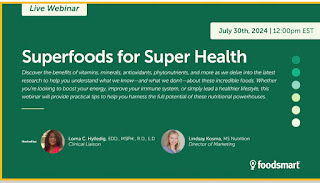7 Nutritional Myths Debunked
There are several nutrition myths that get in the way of making necessary lifelong dietary and behavior changes. This post seeks to examine those myths and to present factual and/or evidence-based refutations for each scenario.
Myth 1: Special Detoxification Diets are needed so that toxins can be removed from the body:
The body has its own detoxification systems by way of the liver and kidneys. When these are functioning optimally and not diseased, toxins are eliminated and excreted effectively. The key is to have a well-balanced, varied and adequate diet that contains rich sources of fiber and to keep the body adequately hydrated to support the body's natural detoxification system.
Myth 2: All Carbs are bad:
Like Proteins and Fats, Carbohydrates are sources of energy for the body. In fact, under normal conditions, carbohydrates are a preferred energy source. Carbohydrates are also needed to help spare breakdown of proteins. The key is to know and to be able to distinguish between complex carbohydrates (such as fruits, vegetables and whole grains) which should be a part of a healthy diet and to refrain from refined and ultra processed carbohydrates which include added sugars, and sugary empty-calorie snacks.
Myth 3: All Processed foods are bad:
The reality is that some processed foods such as frozen and canned vegetables and peas and beans are convenient, and they retain their nutritional value thereby contributing towards a healthy diet. A best practice is to always review food labels and the ingredients list and to make selections that contain no or less additives and artificial ingredients.
Myth 4: A gluten-free diet is the best option for everyone:
Many gluten-free food items may be relatively lower in vitamins, minerals as well as fiber. Therefore, there may be potential for development of nutrient deficiencies in some individuals. Clearly for persons with developed gluten sensitivities and celiac disease, a gluten-free diet is necessary. However, a gluten-free diet is not an absolute necessity for persons without these diagnoses.
Myth 5: Low-fat and fat-free food items are always best:
Many low-fat and fat-free food products are filled with additional sugars and other unhealthy additives. Therefore, reading food labels is again of utmost importance in determining both nutrient levels as well as unhealthy additives.
Myth 6: Sugar is Sugar, and all sugars are equally bad:
Added sugars included in processed foods and drinks are associated with adverse health effects. However, sugar that occurs naturally in items such as fruits and dairy products also contain other essential nutrients such as vitamins and minerals and are therefore healthier choices than processed foods containing added sugars.
Myth 7: Eating after 8:00 pm causes weight gain:
While I would not encourage getting into the habit of eating dinner after 8:00 pm, weight gain is not specifically associated with the time of meals but with imbalance between daily caloric intake and daily energy expenditure. Paying attention to this balance as well as overall dietary quality is most important.
When in doubt, confer with a dietitian regarding your dietary needs, choices and practices.
Lorna C. Hylledig EDD., MSPH., R.D., L.D










Love, love, love this blog post! 🙌🏾🙌🏾🙌🏾 This is a discussion that definitely needed to be had! There are so many myths and misconceptions out there about nutrition! I’m glad that you’ve been able to clear up some of these misconceptions for us!
ReplyDeleteThere is so much false information circulating. Nutrition is not readily understood and people make conjectures. Thank you so much for clarifying these myths!
ReplyDeleteOphelia, thank you for your comment! I appreciate the feedback!
DeleteMy comments above.
ReplyDelete